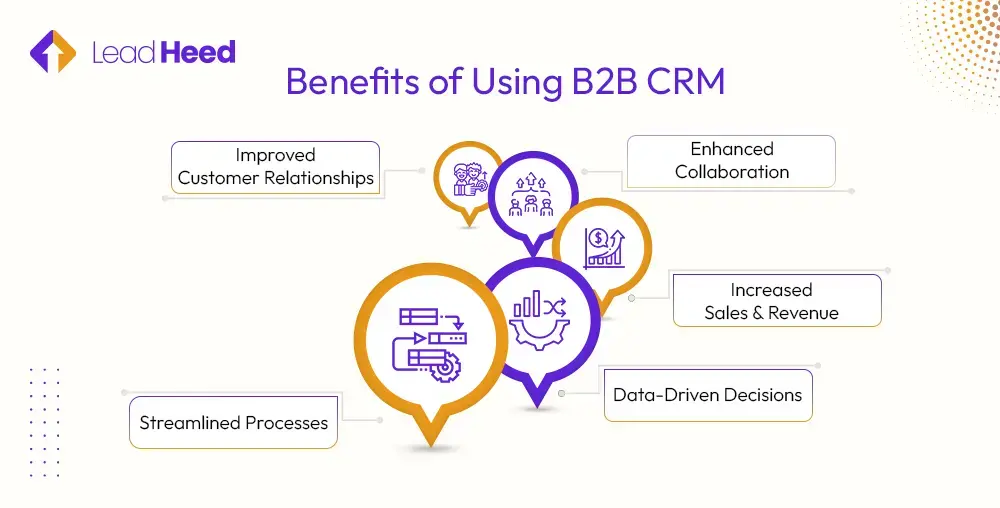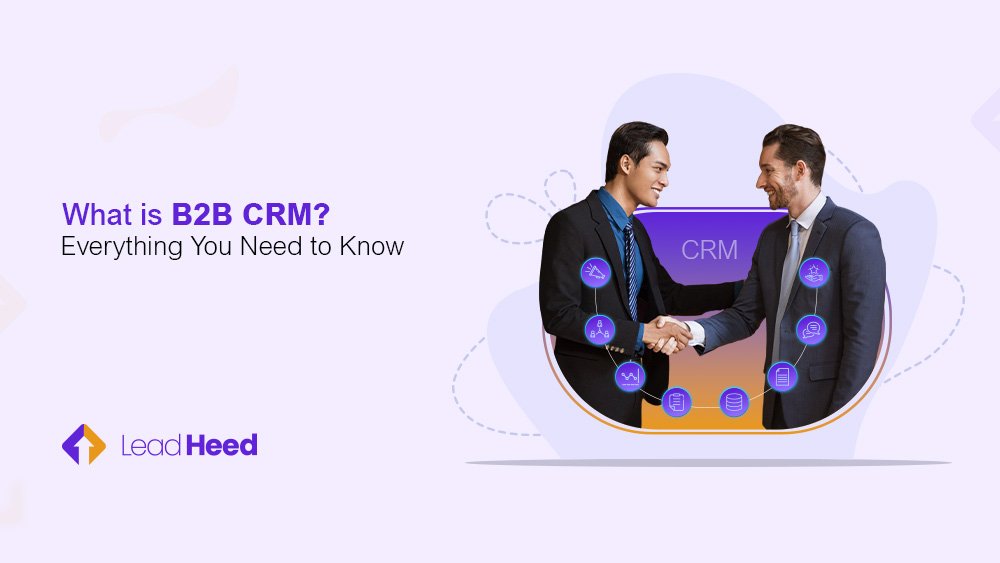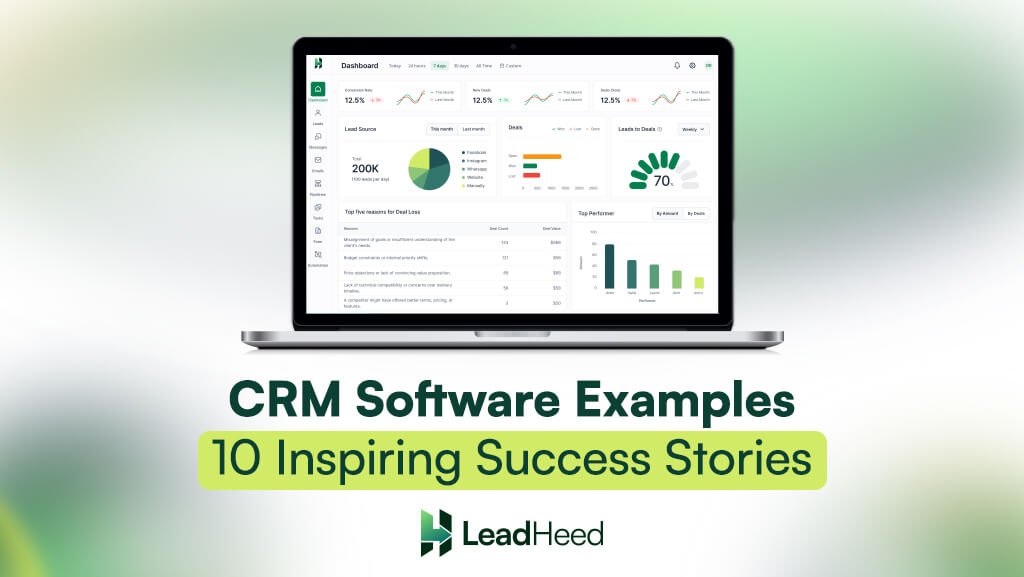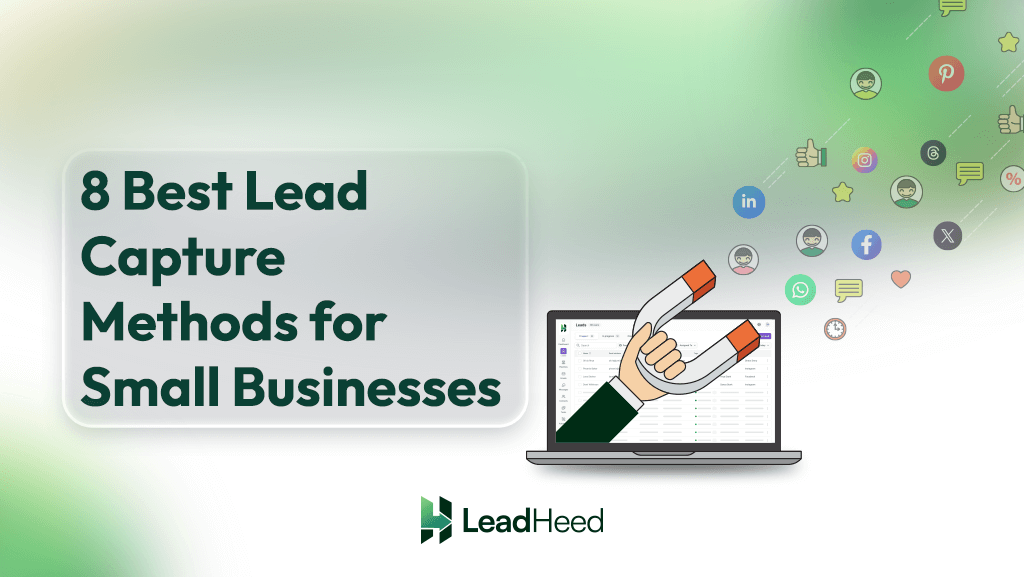What if you could manage all your business clients in one place, keep track of every conversation, and close big deals faster? That’s exactly what a B2B CRM helps you do. In today’s competitive world, you could miss out if your business doesn’t use a B2B CRM. But what is B2B CRM, and why is it so important?
Let’s explore how B2B CRM works and why it might be precisely what your business needs.
What is B2B CRM?
B2B CRM stands for Business-to-Business Customer Relationship Management. It refers to tools and strategies that help businesses manage their relationships, sales processes, and communication with other businesses, rather than individual consumers.
For example, a software company selling its product to enterprises or a wholesale supplier working with retail chains would use a B2B CRM to manage these interactions.
A B2B CRM focuses on key areas such as
- Lead management,
- Sales Tracking,
- Contact Management
- Reporting and Analysis,
- Internal team collaboration
B2B sales are typically more complex and expensive than B2C sales, with several decision-makers and longer sales cycles. A CRM brings customer information together, tracks touchpoints, and ensures that nothing falls through the cracks.
Ultimately, B2B CRM systems allow businesses to create better customer experiences, increase sales, and build long-term, profitable relationships, all backed by real-time, data-driven insight.
Why is a B2B CRM System Important?
A B2B CRM system is a type of CRM designed specifically for managing complex relationships between businesses. Unlike B2C transactions, B2B sales involve longer sales cycles, high-value deals, and multiple decision-makers, making organization, communication, and strategy critical.
Here’s why B2B CRM matters:
1. Centralized Customer Information
All contact details, emails, and deal histories are stored in one place, making it easy for teams to stay aligned and manage workflows efficiently with CRM data management.
2. Stronger Customer Engagement
By tracking interactions and preferences, businesses can engage with clients more consistently and deliver a better customer experience.
3. Scalability and Growth
As your business grows, a CRM system keeps your processes organized and efficient, without losing the personal touch.
4. Smarter Decision-Making
Access to real-time data helps businesses understand client behavior and spot opportunities. By using predictive analytics, you can anticipate customer needs, enhancing decisions with insights from machine learning in CRM.
Benefits of Using B2B CRM
B2B CRM offers many benefits, including improved customer relationships, increased sales and revenue, streamlined processes, data-driven decision-making, and enhanced team collaboration. These advantages help businesses build stronger client partnerships, close deals more efficiently, reduce operational errors, and make smarter, growth-focused decisions based on real-time insights.

1. Improved Customer Relationships
A B2B CRM helps businesses understand their clients better by centralizing data and tracking interactions across departments. This ensures seamless communication between sales, marketing, customer service, and e-commerce teams, all working together to deliver a unified and personalized customer experience.
With access to complete client histories and real-time insights, businesses can respond to customer needs faster, resolve issues proactively, and strengthen long-term relationships..
2. Increased Sales and Revenue
A successful B2B CRM system improves sales performance by enabling teams to manage leads, track follow-ups, and close sales more effectively. CRM analytics also provide valuable insights into buying behavior and purchasing patterns, allowing companies to tailor offerings and marketing initiatives.
This approach improves customer engagement and increases conversion rates and revenue growth, ultimately contributing to long-term business success.
3. Streamlined Processes
A CRM system for B2B companies saves time and reduces manual errors by automating tasks like reminders, follow-ups, and email campaigns. All communication—from emails to meetings—is stored in one place, making it easy to track progress and manage workloads efficiently.
4. Data-Driven Decisions
One of the most significant advantages of a B2B CRM is access to actionable data. Businesses can collect and analyze customer information to identify trends, preferences, and opportunities.
With this data, teams can make informed decisions about sales strategies, product development, marketing campaigns, and resource allocation, helping drive better results and measurable ROI.
5. Enhanced Collaboration
Strong teamwork is essential for delivering a consistent and professional client experience. A B2B CRM system allows different departments to share information seamlessly. Sharing client data across marketing, sales, and support teams creates a unified experience for customers, highlighting the benefits of collaborative CRM. For instance, marketing can hand over qualified leads to sales, while customer support can view past interactions to resolve issues faster.
Key Features of B2B CRM Systems
Key features of B2B CRM systems include contact management, integration capabilities, sales pipeline management, and sales automation. These systems also help businesses track every interaction, personalize communication, and gain insights into customer behavior, leading to more efficient operations and stronger client relationships.
1. Contact management
A good B2B CRM system helps businesses gather data from different sources. This data helps them organize and track information about clients, leads, and other important contacts, saving the repetition of the manual search task.
Contact management allows you to easily:
- Create a new contact,
- Add new information about your contacts.
- Share contact information with everyone inside your organization.
2. Integration
Integration with email and calendar platforms is a must. This enables automatic capture of emails, meetings, calls, and other interactions to build timelines and activity histories.
Smooth data flows between email, calendar, and CRM eliminate manual exporting and importing of interactions across systems.
Look out for CRM integrations that:
- They are easy to install, set up, and roll out company-wide
- Support sales, marketing, and customer service processes
- Provide a library of support and documentation material
Smooth integration with email and calendar platforms is essential for efficiency and consistency. Learn how CRM integration can streamline your workflows.
3. Sales Pipeline Management
B2B CRM clearly shows where each prospect is in the sales process. This helps teams better manage and prioritize their efforts. Robust reporting and analytics provide visibility into the sales pipeline.
CRM features within sales should include:
- A structured sales process
- Sales forecasting and reporting
- AI capabilities
4. Sales automation
To boost productivity, the B2B CRM should automate repetitive sales tasks like reminders, follow-ups, and notifications. Overall, it improves productivity, enhances customer interactions, and drives higher revenue by reducing manual workload and improving sales efficiency.
CRM features within sales automation should include the following:
- Lead management
- Live chat
- Email marketing
Difference between B2B CRM and B2C CRM
B2B (Business-to-Business) and B2C (Business-to-Consumer) help manage customer relationships, but they’re used for different types of businesses.B2B CRM is designed for companies that sell to other businesses.
It helps manage longer sales cycles, fewer customers, and more complex deals. B2C CRM, on the other hand, is for companies that sell directly to consumers. It handles large numbers of customers, faster sales, and focuses on marketing and customer service.
Here’s a comparison between the two:
| Aspect | B2B (Business-to-Business) | B2C (Business-to-Consumer) |
| Introduction | A model where businesses sell products or services to other businesses or organizations. | A model where businesses sell products or services directly to individual consumers. |
| Target Audience | Other businesses | Individual people |
| Sales Cycle | Complex, involves multiple decision-makers, requires more time for discussions, negotiations, and approvals | Quicker decisions, fewer steps involved |
| Transaction Size | Larger bulk purchases or long-term contracts | Smaller individual or small quantity purchases |
| Pricing Structure | Flexible and negotiable | Fixed and standard for all customers |
Conclusion
B2B CRM software helps businesses improve their relationships with clients. It also boosts operational efficiency and supports long-term partnerships.
Companies can use many features made for B2B needs. This helps them manage complex sales cycles, personalize client experiences, and increase revenue growth. Businesses need to thoroughly evaluate the key features’ benefits, consider their specific needs, and align with organizational goals.
Get started with B2B CRM.
The right B2B CRM isn’t just a tool; it’s the engine driving your customer interactions, sales processes, and business growth. To start, companies should define their goals. These could be improving lead management, automating sales tasks, or enhancing customer communication.
In today’s competitive market, every lead matters, and customer expectations are high. A good CRM can change how you run your business. That’s where LeadHeed comes in.
LeadHeed is a CRM platform that helps businesses manage customer relationships, streamline operations, and drive growth.
LeadHeed is a customizable, user-friendly CRM that streamlines operations and boosts growth. With powerful features, seamless integrations, and strong security, we help you manage customers effortlessly.
Get started with LeadHeed today and transform how you manage your business relationships.
Frequently Asked Questions (FAQs)
What is the importance of CRM in B2B Marketing?
B2B CRM systems offer visibility into the sales pipeline, helping businesses track deals, identify roadblocks, and close sales faster.
Which is the best CRM system for small B2B Companies?
LeadHeed could be the best CRM for small B2B companies. It offers customizable tools, sales automation, and data insights to help drive growth. Other options include HubSpot, Zoho, and Pipedrive.
What is B2B CRM?
B2B CRM is a system that helps manage client contacts, track interactions, and personalize communication.
Does B2B CRM work just like B2C CRM?
No, A B2B CRM does not work exactly like a B2C CRM. B2B CRM focuses on long sales cycles and building relationships. In contrast, B2C CRM emphasizes quick transactions and personalized marketing for large customer bases.
What are the benefits of CRM in B2B?
Businesses can monitor the status of deals at every level thanks to B2B CRM solutions, which offer a clear and comprehensive view of the sales pipeline.



